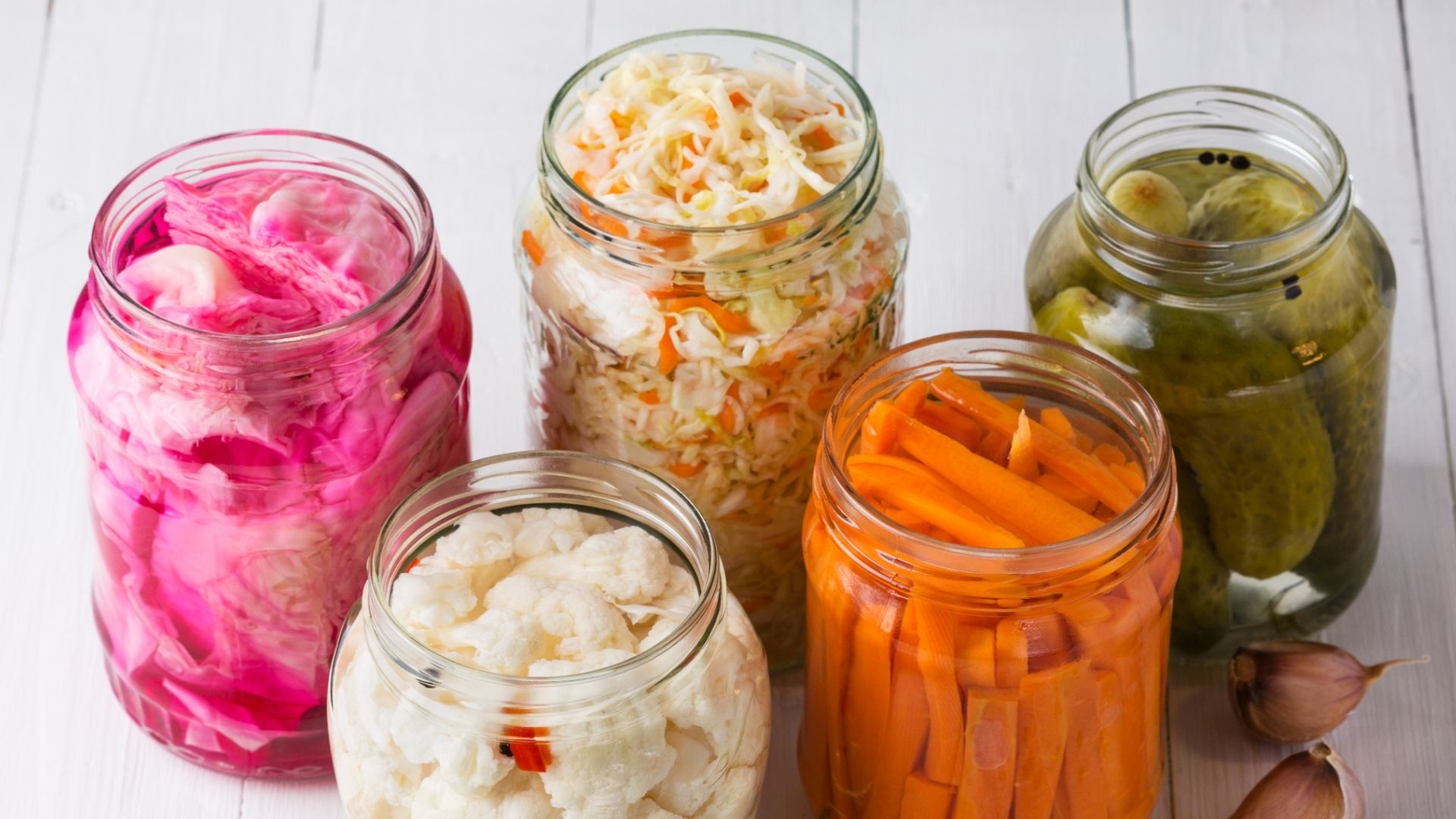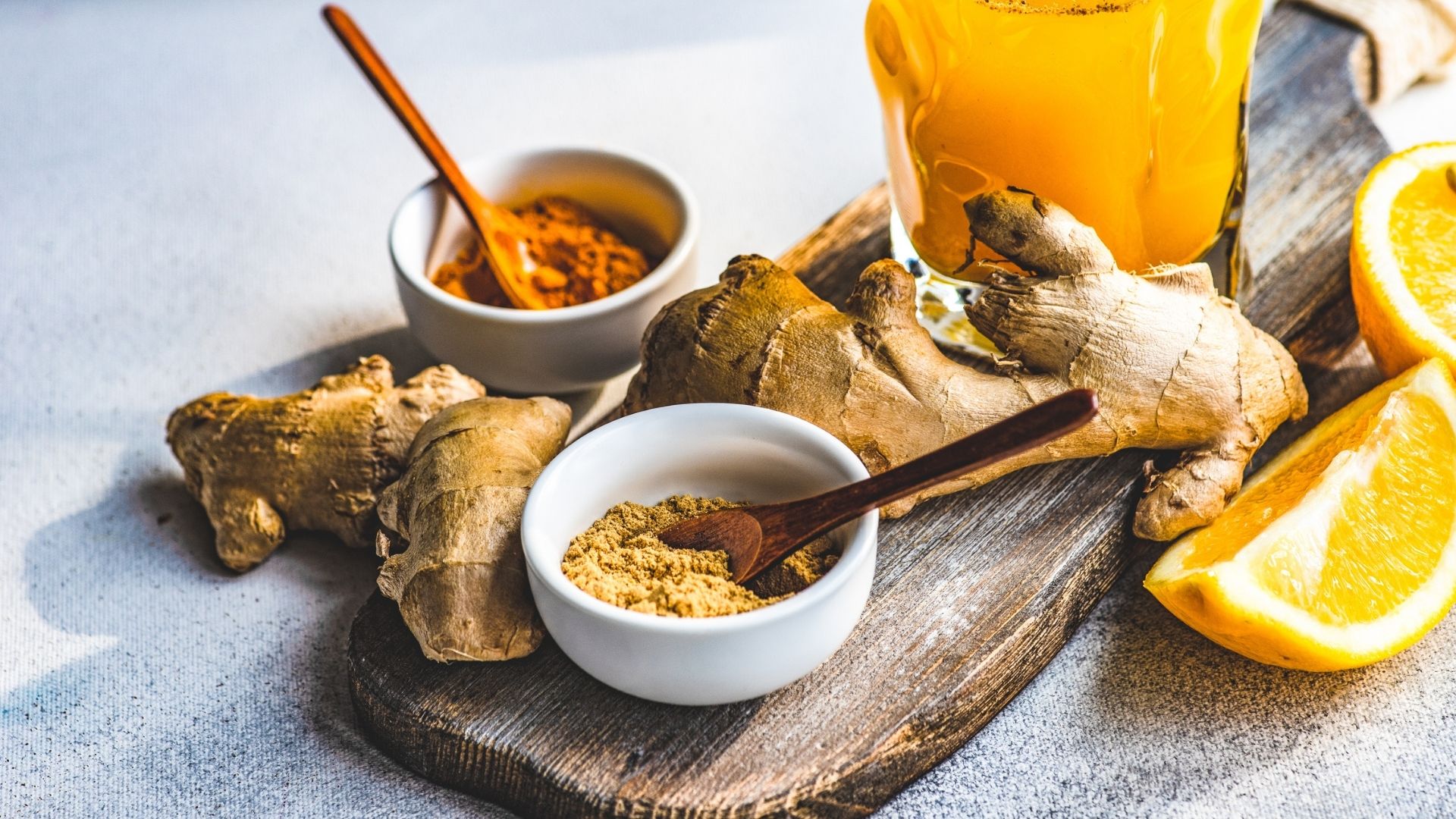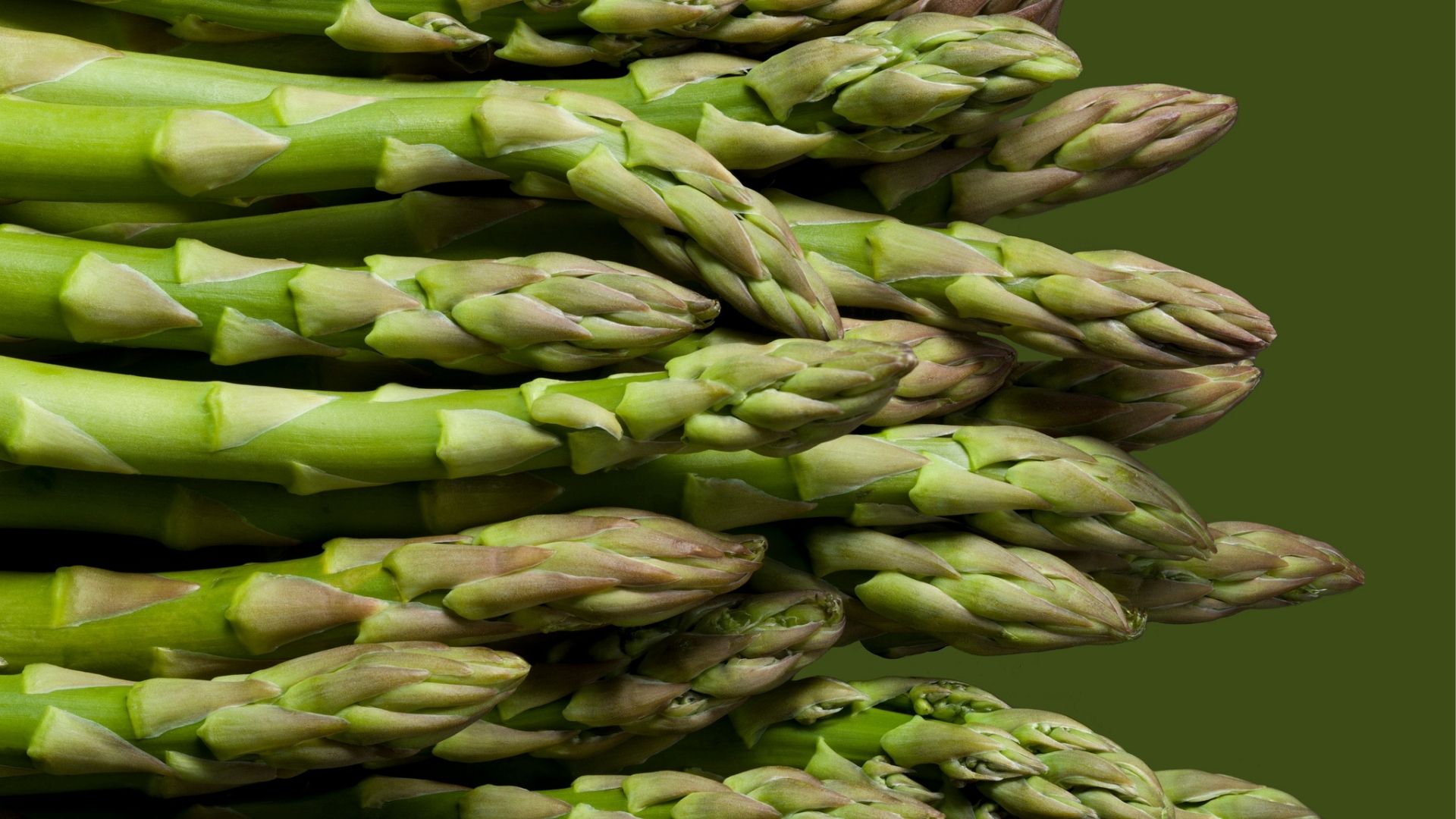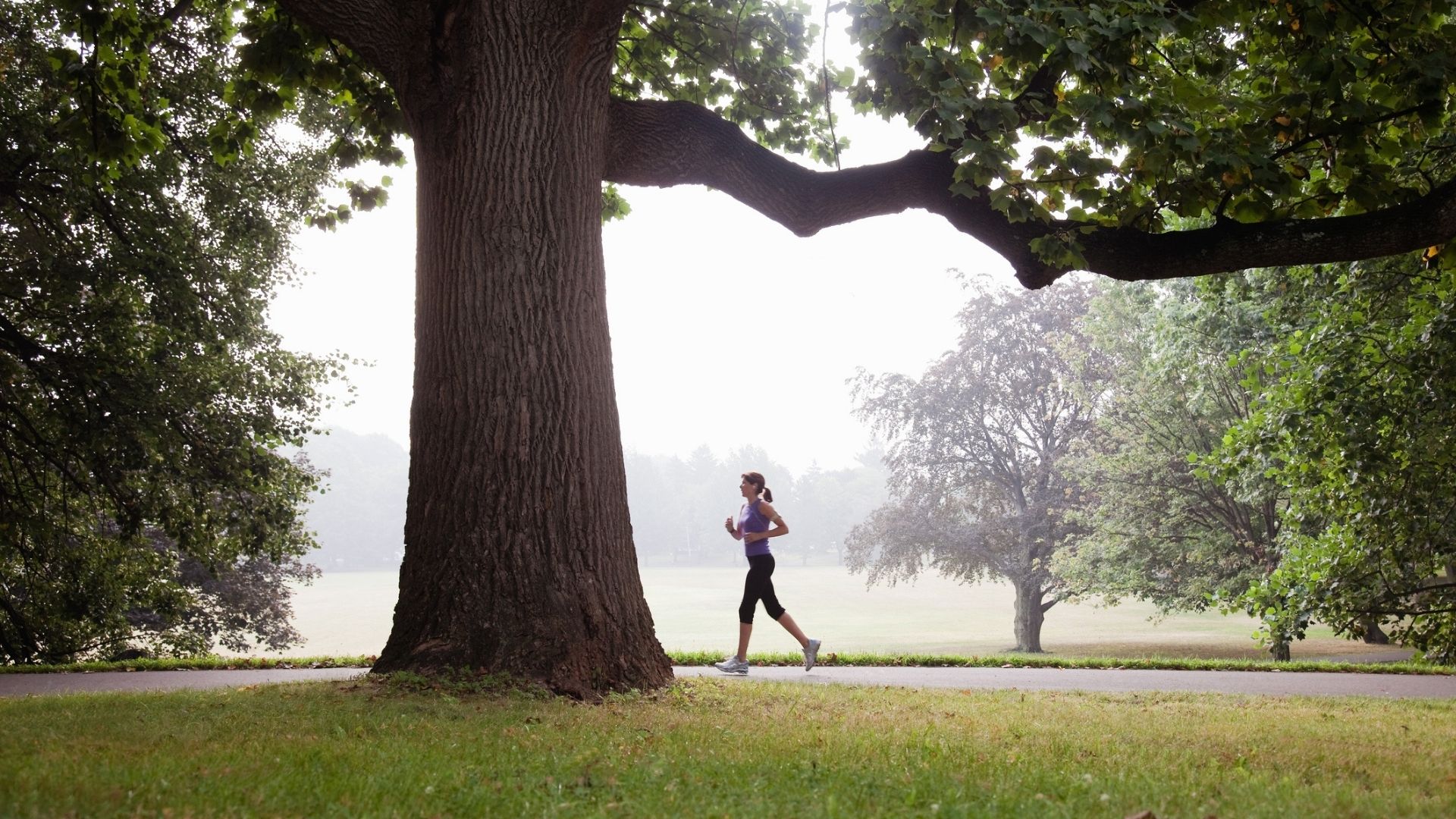10 natural remedies for hay fever to keep allergies at bay this year
Medical experts and allergy specialists reveal the best natural remedies for hay fever


Allergies season can be tough but there are thankfully plenty of natural remedies for hay fever to help prevent symptoms like dry eyes, sneezing, runny noses, coughing, fatigue, and everything that comes with them.
Pollen season starts any time from March and carries on until mid-September, so we're in it for the long haul now. It does peak in the summer months though, making avoiding floating pollen particles tricky for those who want to make the most of the warmer weather and sunshine.
Research from the Natasha Allergy Research Foundation shows that one in four people in the UK suffer from hay fever and the number of people diagnosed rises by five percent each year, partly due to the impact of climate change. These hay fever symptoms can range from mild to severe, but despite being relatively common, finding the best thing for hay fever can be difficult. To help you discover what actually works to combat seasonal allergies this year, we asked medical experts and allergy specialists for the best natural remedies for hay fever out there.
Natural remedies for hay fever
1. Include probiotic foods
Interest in gut health has experienced a surge of popularity in the last few years, with probiotics such as kefir, sauerkraut, and kimchi at the top of everyone's shopping list. But as well as being good for our digestion, studies from the University of Florida show that probiotic products that contain lactobacilli and bifidobacteria can help fight off allergy symptoms. Scientists agree that as probiotics increase regulatory T cells in our body (cells that help to regulate our immune system), our body is much more equipped to fight off pollen invaders.
"Probiotics can help by supporting friendly bacteria," says Alison Cullen, a nutritional practitioner and gut health specialist. "But be careful if you're already suffering from high histamine levels. Check yours with a doctor before eating lots of fermented foods or taking probiotics."
Eating gut-friendly products such as sauerkraut and kimchi ahead of allergy season can help you to combat hay fever. But there are some exceptions. Despite its benefits, you should steer clear of dairy products - and that includes gut-friendly kefir. Dairy can contribute to excess mucus, the expert says, which will aggravate stuffy noses further.

2. Stock up on vitamin C
Vitamin C is a powerhouse nutrient. Not only does it help the body's immune system, but a study by the University Medicine Rostock shows it's one of the best natural remedies for hay fever, combating symptoms such as a stuffy nose and red eyes. The research suggested that two to three doses (2g) of vitamin C a week worked best for allergy sufferers, reducing symptoms by up to 38%.
Sign up to our free daily email for the latest royal and entertainment news, interesting opinion, expert advice on styling and beauty trends, and no-nonsense guides to the health and wellness questions you want answered.
"Blueberries contain high quantities of vitamin C and quercetin, making them an excellent anti-inflammatory agent," says immunologist and clinical researcher Dr Ross Walton. "Carrots are also high in vitamins A, C, and K, so can be considered a natural anti-inflammatory agent."
Vitamin C is readily available in many foods, with highly concentrated doses found in citrus fruits (such as oranges), peppers, broccoli, blackcurrants, and rosehips, but it can also be taken in supplement form.
3. Swap out your alcoholic drink
"An easy way to prevent hay fever is to steer away from alcohol to avoid your allergy symptoms being triggered," explains Melanie King, a senior pharmacist and allergy specialist. While many people say that botantical drinks, such as gin, can aid hay fever symptoms, the little benefit they do have would be counteracted quickly by the alcohol level.
"Most alcoholic drinks contain histamine, the same chemical released in the body when you have an allergic reaction."
That being said, if you do want to drink, then stick to low-alcohol wines or clear alcohols, such as vodka. "Clear alcohols are generally lower in histamine than darker drinks like red wine and beer," adds King, who also works with Pharmacy2U. "However, champagne is high in histamine so find something else to celebrate with."

4. Add in ginger
Research from Thammasat University shows that ginger can slow down histamine production by reducing our IgE levels, and can either be added to meals or drunk as a liquid in the form of tea. "IgE, or immunoglobulin E, is the antibody responsible for triggering an allergic reaction within your immune system," says Dr Walton. "When levels of this antibody are lowered, you are less likely to encounter allergy symptoms."
Ginger tea, ginger supplements, and powdered ginger extract are all great options if you want to factor this supplement into your diet. Adding it to soups, stir-fries, and bakes can also be a good way to include it.
5. Use aloe vera
Known for its soothing properties, aloe vera, taken from the aloe vera plant, has a long history of medicinal uses from treating sunburn to improving complexion. "There is some evidence from Jilian University to suggest that aloe vera products taken orally could theoretically relieve allergy symptoms, due to a possible stabilizing effect on the cells in the body that release histamine," says King. "But there have not been enough studies to show a firm link in humans."
Even if aloe vera doesn't prevent you from suffering from seasonal allergies, it can be handy in helping you combat symptoms. Blowing your nose increases soreness and inflammation around the nostrils. By using an aloe vera gel, you can calm the inflamed area and it can also be a good way to help soothe puffy eyes.
"Aloe vera contains mucopolysaccharide acemannan, which is an anti-inflammatory compound that can support skin healing," adds Dr Walton. "Aloe’s anthraquinone, which are organic compounds found in plants, is also anti-inflammatory."
6. Eat quercetin-rich foods
Found in onions, apples, and green beans amongst others, quercetin is a plant pigment that research from Tomas Bata University suggests is a natural preventive, as quercetin blocks the release of histamine in the body.
"Quercetin can suppress allergic reactions in a number of ways, including reducing histamine release, the formation of IgE antibodies, and restoring normal immune responses away from abnormal allergic reactions towards those that fight infection," says Dr Walton. You can purchase quercetin as a supplement, or add the foods like leafy green vegetables, lettuce, celery, sage, chives, coriander and dill into your diet, making it one of the top natural remedies for hay fever.

7. Try steam inhalation
One of the best natural remedies for hay fever for many people is steam inhalation. A stuffy nose is one of the most common symptoms of hay fever, but evidence from Mahidol University shows that inhaling steam can help to shift the mucus causing the nasal obstruction, while also soothing and opening the nasal passages.
"A decongestant can relieve a blocked nose and reduce the impact of headaches and sinus issues, leaving you feeling less sluggish and much more prepared to enjoy the day. Improving your sleep hygiene in this way can also help you with how to sleep better at night," says Dr Roger Henderson, a general practitioner who is also an expert at Olbas.
You can level up your steam inhalation by using one of the best essential oils, such as peppermint and eucalyptus, as these act as decongestants and help with opening up the nasal passages.
8. Invest in a natural barrier balm
Barrier balms are one of the best hay fever natural remedies to have in your toolkit. Serving as a cheap and effective way to help prevent allergy flare-ups, they help to block the pollen spores from attacking the system by trapping them before they enter your nose.
"You can create a barrier by applying a balm to the inside of your nostrils," says King. "This will help to trap pollen spores."
Coconut oil and other natural organic balms, such as Haymax can be a great option to stop pollen spores from going up your nose. These can be used alongside other antihistamines or nasal sprays.
9. Try chamomile tea
As natural remedies for hay fever go, boiling the kettle to make a cup of tea might seem a little odd. But chamomile, one of the oldest medicinal herbs out there, can help soothe symptoms of seasonal allergies.
"Chamomile tea is beneficial for those with allergic rhinitis, as it contains azulene, an organic compound that is anti-inflammatory and soothing," says Dr Walton.
It's present in many of the best sleep teas but if you're not a fan of drinking your hay fever relief, steeping, and then cooling chamomile teabags before placing them over closed eyes can offer a calming solution for irritated eyes.
10. Add some nettle into your diet
While this isn't a plant you'd normally want to put near your nose, mouth or even your eyes, nettle can serve as a great natural remedy for hay fever when taken as a supplement or tea.
"Nettles are superb histamine blockers and are widely considered a natural antihistamine, with research from the Herbal Science Group showing they can also inhibit several of the inflammatory events that cause the symptoms of allergic rhinitis," says Dr Walton.
"The same research pinpoints the chemical pathways with which nettle interferes to reduce these symptoms as an extract of stinging nettle, known as urtica dioica, has been shown to disrupt the processes that cause the symptoms of seasonal allergies."

What’s the best thing for hay fever?
- Clean your clothes: While there are no-one-size-fits-all natural remedies for hay fever, cleaning your clothes can help to get rid of pollen that clings to them. However, warns natural physician Dr Fred Pescatore, "drying them on outside rails could put you back where you started, especially on windy days, so make sure to dry your clothes indoors."
- Avoid exercise at the start and end of the day: "The pollen count is highest in the mornings and then in the late afternoon and early evening," says King. "If you’re especially sensitive to pollen, you might want to avoid being outside at these times. If you’re worried about a high pollen count, check the weather tracking apps daily."
- Skip gardening chores: "An obvious one, but avoid mowing the lawn or trimming the hedges during the height of allergy season," says Dr Pescatore. "Annoyingly, some grasses are more likely to release pollen the taller the blades grow, so try to find someone who doesn’t suffer from hay fever to keep your lawn trimmed for you."
- Prioritize sleep: "Night-time immune activity (which naturally happens as we sleep) strengthens adaptive immunity, fortifying and repairing wounds, and also fighting off infection," says Cullen, who works at A. Vogel. "Interaction of immune system components during sleep reinforces the body's ability to remember how to recognize and react to dangerous antigens, which can help the body with its fight against allergies."
- Wash your pets: "If you have pets that go on regular outdoor walks, the pollen is likely to stick to their fur, so ensure when you wash, they wash too," says Dr Pescatore. No time for a bath? Use a microfibre cloth to wipe them down and remove those pesky pollen spores.
With five years of experience working across print and digital publications, Stacey is a journalist who specializes in writing about the latest developments in health and wellbeing. She has also previously written for Women’s Health, Get The Gloss, Fit & Well, Stylist, and Natural Health magazine, covering current health trends and interviewing leading figures in the wellness space.
When she’s not talking to health experts, you can probably find her hiking somewhere in the Welsh countryside or near the coast. Her favorite two ways to switch off are a Pilates class and a glass of wine with a home-cooked meal.
